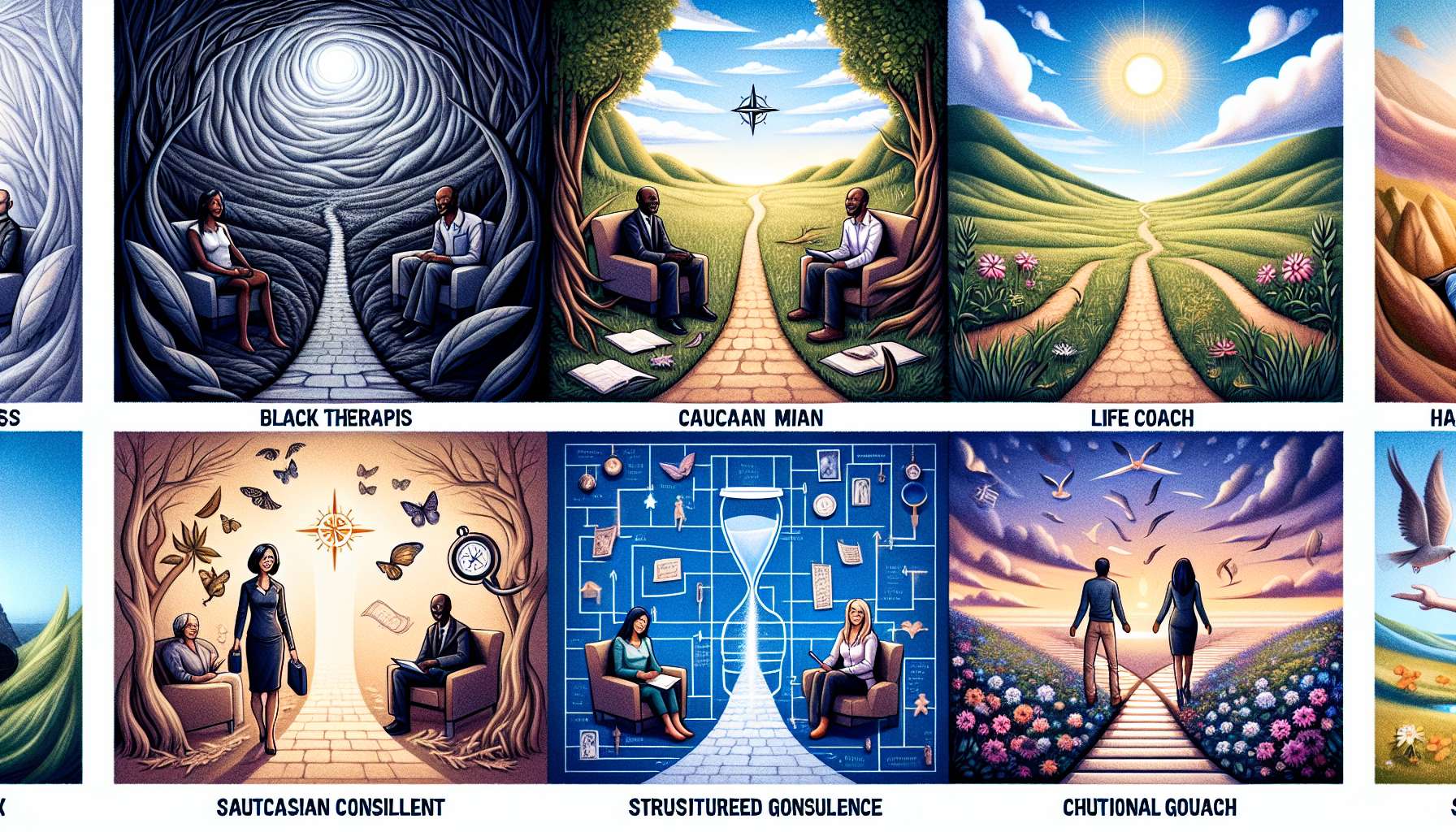—
Submodule 1.3 – Differentiating Coaching from Other Professions
The landscape of personal development is diverse, featuring a variety of roles such as therapists, consultants, mentors, and life coaches. Understanding the distinctions between these professions is instrumental in not only adhering to the ethics of coaching but also in ensuring that clients receive the right kind of support for their needs.
Therapists and psychologists typically work with clients to heal emotional wounds or dysfunctions often originating from the past. Their approach is often diagnostic, analyzing the client’s history to understand current behaviour. For example, a therapist might help someone with deep-seated anxiety stemming from childhood experiences.
On the other hand, a consultant is generally an expert in a particular field who provides specific advice, offering solutions based on what has worked in other organizations or situations. They are the architects who lay out the blueprint for success; think of the consultant who advises a start-up on their growth strategy utilizing industry best practices.
Life coaching, unlike therapy, focuses predominantly on the present and future. A life coach would work with a person like John, who is already functioning well but wants to enhance his life further by setting goals to advance his career. There’s no deep dive into John’s past, only forward-looking strategy and action.
Mentoring, contrastingly, is usually a relationship where a more experienced individual helps guide someone less experienced. The mentor may share personal stories and advice based on their journey. For instance, a seasoned executive may mentor a young professional by sharing their path to success and providing guidance based on their lived experience.
Life coaches, rather than providing answers or advice, will employ tools and techniques to facilitate self-discovery in the client and encourage them to create their own path. If Anna seeks to improve her leadership skills, a life coach wouldn’t give explicit advice but would help Anna uncover her leadership style and develop it further through targeted exercises.
Yet another role is that of a spiritual guide or counselor, who might help individuals on matters of faith or spirituality, often providing guidance within the context of a particular belief system. This differs from life coaching, which maintains a secular stance and is not aligned with any particular religious or spiritual philosophy.
Key takeaways from differentiating coaching from other professions:
– Therapists heal emotional pains primarily focusing on past issues, whereas life coaches concentrate on the present and future goals.
– Consultants provide expert solutions for specific problems, whereas coaches encourage clients to discover their own solutions.
– Mentors offer guidance based on personal experience, unlike coaches who facilitate personal growth without imposing their own journey.
– Coaches place importance on creating a non-judgmental space for clients to explore and grow, which can differ from the directive advice of mentors or consultants.
– Understanding these distinctions helps coaches maintain professional integrity and ensures clients receive the appropriate type of support.
—
Recognizing these distinctions not only clarifies the purpose and capabilities of a life coach but also prevents any potential misrepresentation of services to clients. As a life coach, it’s vital to honor these differences to uphold the essence of coaching and ensure clients embark on a journey that’s truly their own.
👉 To download docx (Editable) file click here : Click here
👉 To download PDF file click here : Click here
👉 To download MP3 file click here : Click here








